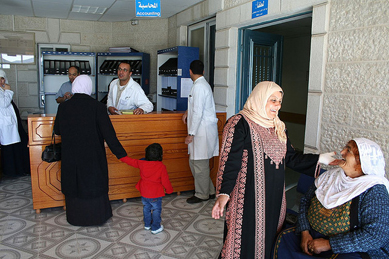Home » Course Layouts » Free Course Layout Udemy
Healthcare professionals around the world are experiencing increasing pressures from patients, communities, governments and payers to demonstrate value. Controlling costs, providing high-quality outcomes, assuring access, and enhancing patient satisfaction have become leading issues. In addition, services increasingly are provided within the context of multi-disciplinary teams and complex organizational and financial arrangements. Fiscal and other resource constraints abound. Meeting these challenges within healthcare settings requires leadership and managerial skills in addition to clinical expertise.
0
60
English
English [CC]
FREE
- Learn basic syntax that can apply to any language.
- Learn what is a programming language and the basic concepts for beginners.
- Understand what is Javascript in it's truest form.
- Know the basic syntax of Javascript.
- Know some hidden quirks in Javascript.
Description
This course provides a learning laboratory experience for students who will explore a variety of settings in which to apply concepts learned in Managing Health Services Organizations.
Students are assigned to groups of 5-6 students for the duration of the course to address the problems in groups. Through the use of case studies, videos and small group discussion, students will explore such topics as:
- Leadership
- Systems thinking
- Organizational design, stakeholders and governance
- Quality assurance tools
- Communication, cooperation and collaboration
- Budgeting and financial management
- Measuring and monitoring organizational performance
- Balanced scorecards
Course Objectives
Upon completion of this course, students are able to:- Work in teams to tackle problems faced by managers of health services organizations
- Apply an understanding of environmental and organizational factors in managerial decision-making
- Use communication and collaboration skills in addressing problems of complex systems
- Use quality assurance tools such as flow charts
- Develop a budget based on information regarding business or service volume, staffing levels, salary rates, and supply usage and costs
- Develop the metrics needed to populate a balanced scorecard to monitor the performance of health services organizations
Readings
Course content
-
- Leadership & Management: Nominal Group Technique 03:00:00
-
- Organizational Foundation & the Environment: SWOT Analysis of an Organization in Transition 03:00:00
- Leadership & Management: Common Currency 01:20:00
- Improving a Key Work Process 03:00:00
- Balanced Scorecard – Organizational Performance Results 02:00:00
- Approaches to Managing Health Services Organizations 2 weeks
N.A
- 5 stars0
- 4 stars0
- 3 stars0
- 2 stars0
- 1 stars0
No Reviews found for this course.
Instructor
John Hopkin University
0
0
169
6
Explore Free Courses
Access valuable knowledge without any cost.
{"title":"","show_title":"0","post_type":"course","taxonomy":"course-cat","term":"engineering-skills,health-and-safety","post_ids":"","course_style":"free","featured_style":"course6","masonry":"","grid_columns":"clear4 col-md-3","column_width":"268","gutter":"30","grid_number":"4","infinite":"","pagination":"","grid_excerpt_length":"20","grid_link":"1","grid_search":"0","course_type":"","css_class":"","container_css":"","custom_css":""}










